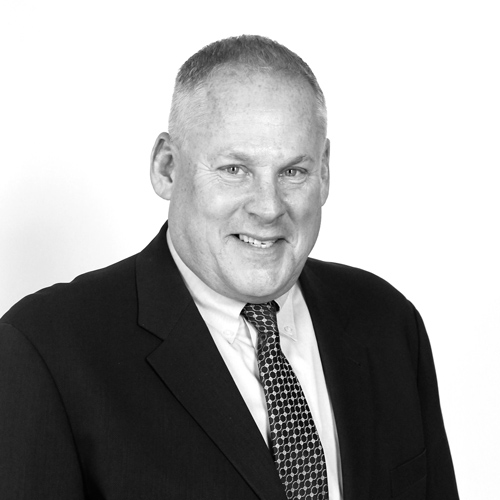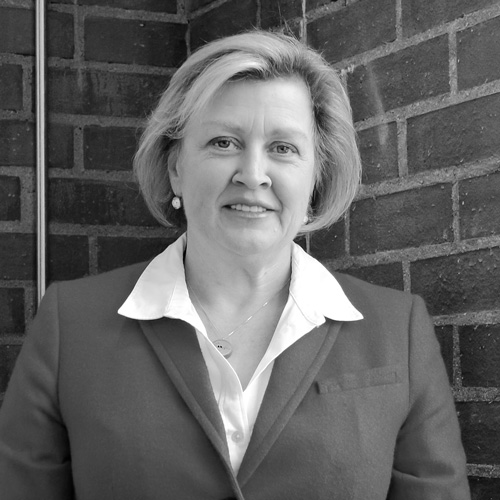Lee Allen has dedicated more than twenty years of his career to the pharmaceutical industry with a broad range of scientific, strategic, and leadership roles. But that’s not where his career began.
Allen started as a PhD research scientist investigating signaling pathways that are important in the development of cancer. However, he quickly realized he wanted more of a direct connection with patients. Medical school followed, and he became a practicing hematology oncologist. But while there, he soon recognized the significant limitations he faced given the available treatments, which were quite toxic and only incrementally effective.
“As a clinician, I might impact the lives of a couple of hundred patients, but by developing new treatments, I could impact hundreds of thousands of lives,” Allen says. “I decided I could do more to help patients working in the pharmaceutical industry, developing more effective treatment options, and giving them new hope in fighting their diseases.”
He made the transition in 1997, starting in big pharma at BASF/Knoll, Pfizer, and then Wyeth Pharmaceuticals. While working at these companies, he was successful in achieving his goals of finding new treatment options and giving patients more hope. He led several different teams that shepherded new cancer drugs through development to final FDA and global approvals. One example was Wyeth’s Torisel. Allen worked on bringing this novel, first-in-class mTOR inhibitor to market as the first treatment for renal cell cancer shown to significantly improve patients’ overall survival. This was quite an accomplishment because the likelihood of success for new drugs and treatments is significantly low. About 10 percent of all drugs and 5 percent of cancer drugs entering Phase 1 studies are ultimately successfully approved.
A Brief History of Argos Therapeutics
The history of Argos Therapeutics is intertwined with two research universities. At Rockefeller University in New York City, company cofounder Dr. Ralph M. Steinman identified the type of cell responsible for commanding other immune cells’ efforts: the dendritic cell. He also developed a method to generate these cells. He eventually won a Nobel Prize for this discovery in 2011. At Duke University, company cofounders invented the mRNA-based technology.
In 1997, Argos Therapeutics was founded. Today, the company is headquartered in Durham, North Carolina, where it focuses on developing individualized immunotherapy using both mRNA and dendritic cell technology to deliver targeted treatments to individual patients. Both technologies are combined in Argos’s patented Arcelis technology.
After working at these large companies, Allen was drawn to the challenges and opportunities presented by smaller biotech companies. He worked as chief medical officer at AMAG and Spectrum Pharmaceuticals. In January 2016, he became chief medical officer at Argos Therapeutics.
“Argos is a pioneering, entrepreneurial company that’s working to bring an innovative, individualized immunotherapy to market,” Allen says. “I saw this as a second chance for me to help with the approval of another cutting-edge treatment pathway to help renal cancer patients, this time a personalized immunotherapy.”
Argos’s approach is centered around its Arcelis platform, which uses a sample of a patient’s tumor and white blood cells derived from his or her bloodstream to generate an individualized immunotherapy that aims to reprogram the immune system to recognize tumor-specific antigens (neoantigens). This is accomplished by loading patient-derived dendritic cells with amplified tumor RNA (a carrier of expressed antigens), which are then administered back to the patient. Argos believes this results in the induction of an immune response composed of specific memory T-cells (cells specifically programmed to “identify” the patient’s tumor cells) and killer T-cells that are primed to destroy the tumor.
This precision treatment approach is distinct from other approved immunotherapies because the induced immune response is broad and customized to target the individual patient’s tumor and designed to avoid attacking normal tissues. “Importantly, it has the potential to be more specific than other treatment approaches, which only target a single arbitrarily selected tumor antigen found to be associated with a particular type of cancer,” Allen points out. “This is because, in contrast, the Arcelis technology is specifically designed to induce a broad immune response targeted to the various mutated or neoantigens uniquely presented in a patient’s tumor. In addition, the platform is uniquely engineered to overcome the immune suppression found in cancer patients by expressing CD40 ligand, an essential costimulatory molecule required for an effective cellular immune response.”
Given its novel mechanism of action and the minimal side effect profile reported in Phase 2, the approach has other potential benefits. By creating a first-in-class immunotherapy, Arcelis might be positioned to be used in combination with other therapies that work via different mechanisms, rather than competing with similar drugs in an existing class. The platform should also be broadly applicable and can be used to develop individualized immunotherapies for other types of tumors and diseases.
Allen considers himself fortunate to have had the opportunity to successfully lead global regulatory approvals for several other products. This includes Beleodaq for peripheral T-cell lymphoma, Evomela for high-dose conditioning in multiple myeloma, and Feraheme for iron deficiency anemia in patients with chronic kidney disease. As a result, he has extensive expertise and strategic insights into the drug approval process that enable him to anticipate what regulators will be looking for. This helps his staff address these potential challenges proactively.
“AS A CLINICIAN, I MIGHT IMPACT THE LIVES OF A COUPLE OF HUNDRED PATIENTS, BUT BY DEVELOPING NEW TREATMENTS, I COULD IMPACT HUNDREDS OF THOUSANDS OF LIVES.”
“At a prior company, I’ve seen a minor discrepancy in the implementation of a study protocol raise significant questions about overall study data credibility,” he says. “This highlights the importance of stringently driving compliance with the protocol.”
Allen also emphasizes the importance of being able to tell a cogent story and often puts himself in the role of a regulator or investigator to help coach his teams. He pushes his teams to position data logically to ensure they adequately support the desired objectives, anticipate the audience’s potential concerns, and address any concerns proactively.
Allen’s experience has made him a believer in situational leadership. He adapts his style to the needs of the teams he works with, the situation they are addressing, and the skills and capabilities of the team members. Because he places a high value on his people and wants to retain talent, he also focuses on recognizing them, rewarding them, and supporting their development.
Even in the high-stakes, high-pressure pharmaceutical environment, Allen recognizes the importance of making work fun. He has organized several elaborate team-building activities, including an American Idol-themed competition and an Indiana Jones-inspired adventure that required teamwork and collaboration to address challenges and solve puzzles. These were transformational events that successfully strengthened cross-functional relationships, increased collaboration, eliminated silos, and improved productivity.
Despite the multiple challenges that the pharmaceutical industry faces, Allen remains optimistic for the future. “Pharmaceutical innovation is accelerating at an unprecedented pace with various global initiatives launched to speed development,” he says. “Hopefully, this will translate into more effective therapies and the possibility of converting cancer from a terminal disease to a chronic condition that is ultimately curable.”
Editor’s Note: As of press time, Dr. Allen had resigned his position with Argos Therapeutics and joined Dova Pharmaceuticals as chief medical officer.


